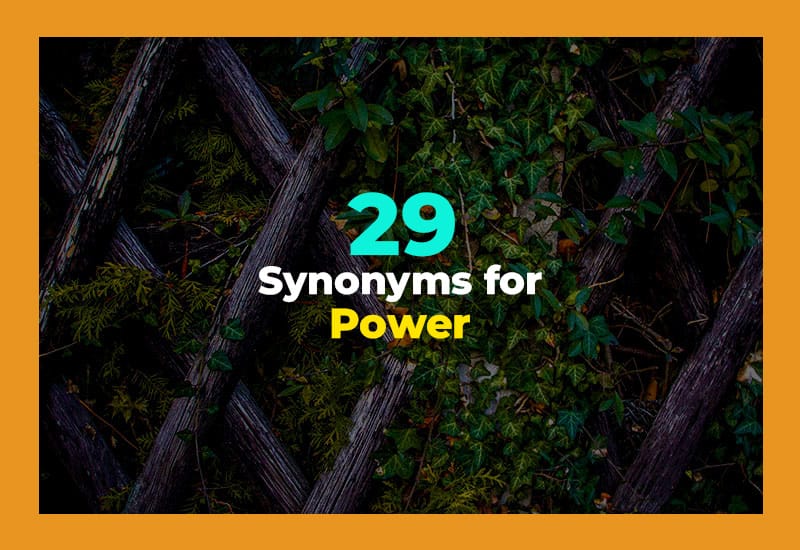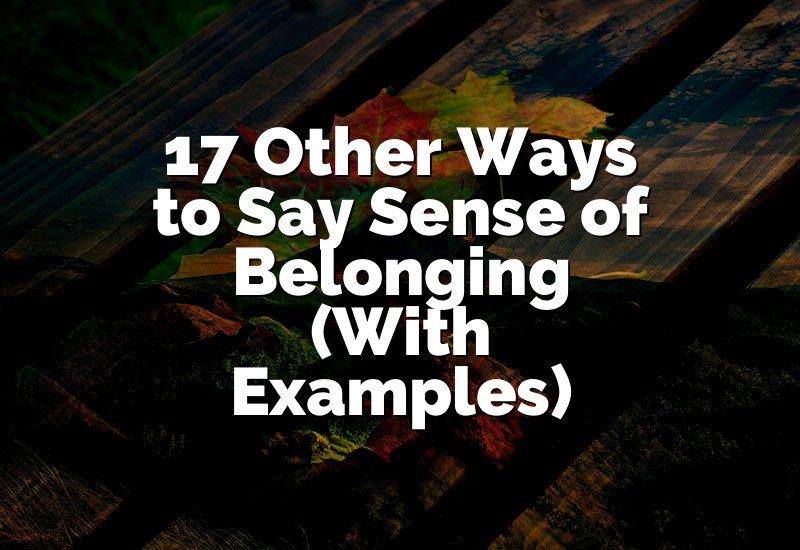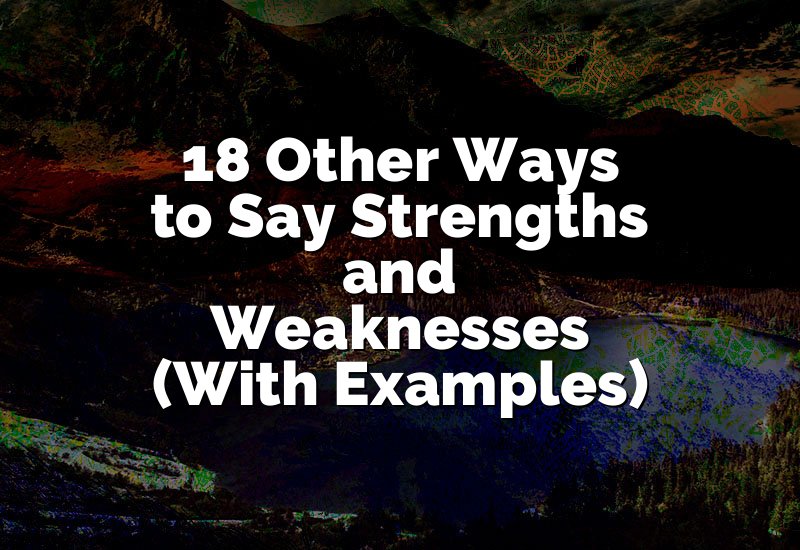You hear the word power and might think of strength, control, or even energy. But did you know there are many other words that mean the same? Words like force, authority, and might all describe different kinds of power. In this post, you'll learn 29 super simple and easy synonyms for power. Each word will help you understand how people use power in different ways. Whether you’re talking about leaders or light bulbs, there’s a word for it!
1. Strength
Strength means the ability to do something hard or heavy. It can be physical, mental, or emotional. For example, "She used her strength to carry the box." You can also say someone has strength when they face a tough time and don't give up. It shows inner power too. People often use this word when talking about heroes, athletes, or strong-minded people. "He had the strength to say no." So, strength isn't just muscle—it's also about courage.
2. Force
Force means a strong push or power that moves something. It can be physical or not. For example, "The wind hit the door with full force." You can also say someone used force in a fight or a rule. "The police used force to control the crowd." It's a simple word used in science and real life. Force often means something powerful that changes things. You'll hear it in physics and even in movies like "Star Wars."
3. Energy
Energy is the power to move, work, or do things. For example, "She has so much energy in the morning!" It can mean body power or electricity. We need energy to light our homes or run machines. Kids often have a lot of energy when they play. "The phone needs energy to charge." Energy is a basic word we use every day. Whether you’re talking about people or batteries, it always means power to do something.
4. Authority
Authority means the right to lead or make decisions. For example, "The teacher has authority in the classroom." It's used when someone is in charge. You can also say someone speaks with authority if they know a lot. "He spoke with great authority on the topic." Authority is not just power—it's power that others agree to follow. Parents, police, and bosses all have authority in their roles. It helps keep order and respect in place.
5. Control
Control means having the power to decide or change things. For example, "She has control over the remote." You can control people, machines, or even emotions. "He lost control of the car." The word is used when someone is managing or guiding something. It's easy to understand and very common. Control helps show power in action. People with control often lead, manage, or decide. You can also say someone has self-control if they keep calm.
6. Influence
Influence means the power to change how someone thinks or acts. For example, "Her speech had a big influence on me." It's a soft kind of power, not by force. You can influence someone with ideas, words, or even actions. Parents, teachers, and leaders often have influence. "He has a lot of influence in his community." It's often used in social settings, media, or business. Influence is about guiding others without giving direct orders.
7. Might
Might means great strength or power, often physical. For example, "He used all his might to open the jar." It can also mean strong control or power in other ways. Countries or leaders can have might, too. "The army showed its full might during the parade." It's a strong, short word that adds weight to what you say. Might shows force and power together, and it often sounds heroic or important.
8. Dominance
Dominance means having more power or control than others. For example, "The team showed its dominance in the game." It means being stronger or in charge. Animals, people, or groups can all have dominance. "He had dominance over the room when he walked in." It's a word used in sports, business, or nature. It shows who's on top or who leads. It's about holding the higher place in power or control.
9. Command
Command means giving orders or being in charge. For example, "The general gave a command to the soldiers." It can be a noun or a verb. Someone with command has the power to lead. "She was in command of the team." This word is often used in the army or in groups. It's about knowing what to do and making others follow. Command shows strong and clear power.
10. Rule
Rule means having power to lead or control. For example, "The king used to rule the land." It can be a verb or a noun. Someone who rules has the highest power. "She ruled with fairness and care." Rule also means the law people must follow. It's a simple word used in everyday life. Rule shows who's in charge and who follows. It's clear, short, and strong.
11. Sway
Sway means soft power to change or guide others. For example, "He held sway over the crowd." It's often used in writing or speeches. Sway is more about influence than control. "Her words swayed my decision." It means you make others think or act a certain way. Sway is quiet power—it doesn't force, but it works. It's a cool way to talk about leading without pushing.
12. Leadership
Leadership means guiding or leading a group. For example, "His leadership helped the team win." It's not just power—it's how you use power. Good leadership means making choices, helping others, and setting a good example. "She showed strong leadership in tough times." It's used in schools, jobs, and teams. Leadership is about action, respect, and trust. It's a kind kind of power.
13. Jurisdiction
Jurisdiction means the legal power to make rules or decisions. For example, "The court has jurisdiction in this case." It's a formal word used in law, police work, or government. "That issue is outside my jurisdiction." It tells where someone's power begins and ends. Jurisdiction helps set clear rules about who controls what. It's important in cities, courts, and countries.
14. Supremacy
Supremacy means being the best or most powerful. For example, "They fought for world supremacy." It shows top power above all others. It's used in sports, politics, or history. "The country claimed military supremacy." Supremacy means no one else is stronger or better. It's a serious word that shows full power or control in one place.
15. Clout
Clout means having strong influence or respect. For example, "He has a lot of clout in the office." It's a casual word that shows social or personal power. People with clout can change minds or plans. "Her ideas carry clout in the group." It's not loud power—it's about respect and trust. Clout is useful in business, media, and friendships.
16. Mastery
Mastery means full control or skill in something. For example, "She showed mastery in painting." It's used when someone is very good at something. "He has mastery over the subject." Mastery means you're not just good—you're the best. It shows personal power through learning or practice. You earn mastery by working hard and knowing your stuff.
17. Charge
Charge means being in control or leading something. For example, "She's in charge of the event." It's simple and used often. When you're in charge, people listen to you. "He took charge when no one else would." Charge means you are trusted to guide or decide. It can be for teams, jobs, or families.
18. Governance
Governance means how power is used to lead or rule. For example, "The city's governance was fair and clear." It's used in politics or organizations. "Good governance helps everyone feel safe." It shows not just who leads, but how they lead. Governance means rules, order, and fairness. It's a smart way to talk about power in action.
19. Sovereignty
Sovereignty means full power or freedom to rule. For example, "The country fought for its sovereignty." It's often used for nations or lands. "The state claimed full sovereignty." It means no one else controls you. Sovereignty shows strong, top-level power. It's about independence and making your own choices.
20. Muscle
Muscle means strong physical power. For example, "He used muscle to lift the table." It can also mean using strength in business or politics. "The company used financial muscle to grow." It's a short, fun word that shows strength in action. Muscle shows power that works fast and hard.
21. Potency
Potency means strong effect or power. For example, "The medicine had great potency." It can be used for things, words, or people. "Her speech had emotional potency." Potency shows how powerful something is. It's about results, not just looks. It's a good word for showing hidden or strong effects.
22. Capacity
Capacity means the power to do, hold, or learn. For example, "He has the capacity to lead." It also means how much something can hold. "The cup has a large capacity." Capacity is used in learning, work, and machines. It's about what someone or something is able to do.
23. Ability
Ability means the skill or power to do something. For example, "She has the ability to sing well." It's simple and very common. "He showed great ability in math." It talks about what people can do. Ability can be learned or natural. It's used for talents and skills.
24. Dominion
Dominion means control or rule over something. For example, "The king had dominion over the land." It's a strong word from old times. "She had dominion over her work." It shows big, clear power. Dominion can be used for people, places, or ideas. It sounds grand and formal.
25. Effectiveness
Effectiveness means the power to get things done. For example, "The tool showed great effectiveness." It's about results. "His leadership had strong effectiveness." When something is effective, it works well. Effectiveness is a quiet kind of power that brings success. It's useful at work, school, or in plans.
26. Grip
Grip means strong hold or control. For example, "The climber had a good grip on the rock." It can also mean control in a group. "She had a strong grip on the team." Grip shows power that holds firm. It's short and clear. Grip is used for physical or mental control.
27. Drive
Drive means inner power to keep going. For example, "He has the drive to succeed." It shows strong energy or will. "Her drive helped her reach her goals." Drive means never giving up. It's used for motivation and success. It's power that pushes forward.
28. Vigor
Vigor means strong energy and life. For example, "He played the game with great vigor." It shows bright and full power. "She worked with vigor all day." Vigor is often used for people or actions. It means doing things with force, speed, and joy.
29. Privilege
Privilege means special power or right given to someone. For example, "It was a privilege to speak there." It's a kind of soft power. "She had the privilege of choosing first." Privilege often comes from status or trust. It's not earned like strength, but given or allowed. It shows a special kind of power.

Final Thoughts
Power comes in many forms, from strength and control to ideas and influence. These 29 simple words help you talk about power in different ways. Whether you’re writing, speaking, or just thinking, using the right synonym makes your point stronger. Remember, words like energy, authority, and drive can all show power in their own way. Choose the one that fits best, and you’ll sound clear and confident. Keep learning new words and exploring what they mean—because words, too, have power!
| Synonym | Meaning | Example |
|---|---|---|
| Strength | Power to do something hard | He had the strength to lift it. |
| Force | Power that moves something | The car moved by force. |
| Energy | Power to work or move | She has so much energy today. |
| Authority | Legal or accepted power | The teacher has authority here. |
| Control | Power to guide or decide | He has control of the team. |
| Influence | Power to change minds | She influenced my choice. |
| Might | Strong physical power | He used all his might. |
| Dominance | More power than others | The team showed dominance. |
| Command | Power to lead or order | She gave a clear command. |
| Rule | Power to govern or lead | The king ruled wisely. |
| Sway | Gentle influence or power | He held sway over them. |
| Leadership | Guiding power | She showed great leadership. |
| Jurisdiction | Legal power in an area | This is outside my jurisdiction. |
| Supremacy | Top power | They fought for supremacy. |
| Clout | Power from respect or rank | She has clout in the office. |
| Mastery | Skill-based power | He has mastery of the guitar. |
| Charge | Being in control | She is in charge of the event. |
| Governance | Power in leadership | Good governance helps people. |
| Sovereignty | Full control or freedom | They claimed sovereignty. |
| Muscle | Physical power | He used muscle to move it. |
| Potency | Strong effect or result | The drug has high potency. |
| Capacity | Power to hold or do | She has the capacity to learn. |
| Ability | Power to do something | He has the ability to swim. |
| Dominion | Control over an area | He had dominion over the land. |
| Effectiveness | Power that works well | The tool showed effectiveness. |
| Grip | Firm hold or control | He had a good grip on the rope. |
| Drive | Inner push or motivation | She has drive to succeed. |
| Vigor | Energetic strength | He worked with vigor. |
| Privilege | Special right or power | It was a privilege to attend. |









